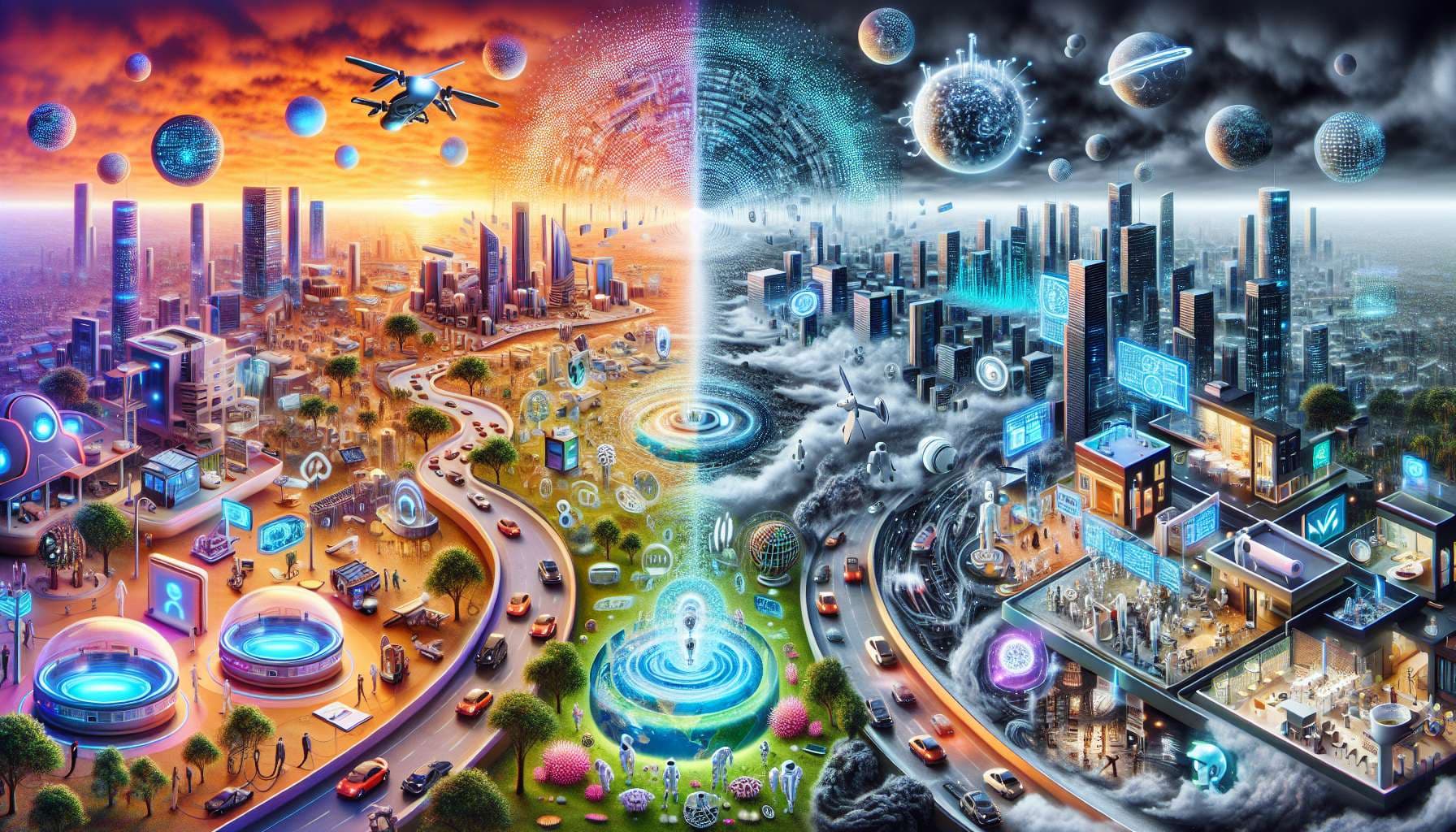
Based on Scott Aaronson's Five Worlds of AI and this metaculus question. Resolves based on the opinions of Manifold moderators in 2150. The metaculus question uses 2050, which seems plausibly too early for an actually correct resolution, but they're both too late for profit-seeking bets.
AI-Fizzle. In this scenario, AI “runs out of steam” fairly soon. AI still has a significant impact on the world (so it’s not the same as a “cryptocurrency fizzle”), but relative to current expectations, this would be considered a disappointment. Rather than the industrial or computer revolutions, AI might be compared in this case to nuclear power: people were initially thrilled about the seemingly limitless potential, but decades later, that potential remains mostly unrealized.
Futurama. In this scenario, AI unleashes a revolution that’s entirely comparable to the scientific, industrial, or information revolutions (but “merely” those). AI systems grow significantly in capabilities and perform many of the tasks currently performed by human experts at a small fraction of the cost, in some domains superhumanly. However, AI systems are still used as tools by humans, and except for a few fringe thinkers, no one treats them as sentient. AI easily passes the Turing test, can prove hard theorems, and can generate entertaining content (as well as deepfakes). But humanity gets used to that, just like we got used to computers creaming us in chess, translating text, and generating special effects in movies.
AI-Dystopia. The technical assumptions of “AI-Dystopia” are similar to those of “Futurama,” but the upshot could hardly be more different. Here, again, AI unleashes a revolution on the scale of the industrial or computer revolutions, but the change is markedly for the worse. AI greatly increases the scale of surveillance by government and private corporations. It causes massive job losses while enriching a tiny elite. It entrenches society’s existing inequalities and biases. And it takes away a central tool against oppression: namely, the ability of humans to refuse or subvert orders.
Singularia. Here AI breaks out of the current paradigm, where increasing capabilities require ever-growing resources of data and computation, and no longer needs human data or human-provided hardware and energy to become stronger at an ever-increasing pace. AIs improve their own intellectual capabilities, including by developing new science, and (whether by deliberate design or happenstance) they act as goal-oriented agents in the physical world. They can effectively be thought of as an alien civilization–or perhaps as a new species, which is to us as we were to Homo erectus. Fortunately, though (and again, whether by careful design or just as a byproduct of their human origins), the AIs act to us like benevolent gods and lead us to an “AI utopia.” They solve our material problems for us, giving us unlimited abundance and presumably virtual-reality adventures of our choosing.
Paperclipalypse. In “Paperclipalypse” or “AI Doom,” we again think of future AIs as a superintelligent “alien race” that doesn’t need humanity for its own development. Here, though, the AIs are either actively opposed to human existence or else indifferent to it in a way that causes our extinction as a byproduct. In this scenario, AIs do not develop a notion of morality comparable to ours or even a notion that keeping a diversity of species and ensuring humans don’t go extinct might be useful to them in the long run. Rather, the interaction between AI and Homo sapiens ends about the same way that the interaction between Homo sapiens and Neanderthals ended.
tailcalled had the same market, but it was with the old MC mechanism
People are also trading
Seems to be duplicative of this market, if anyone cares about arbitrage in 120 years: https://manifold.markets/tailcalled/which-ai-future-will-we-get
imo AI fizzle is underrated, a decently likely outcome is that companies and nations race to ASI, they realize the lightcone will be captured by whoever wins, someone realizes they will not win, and decides to escalate a nuclear conflict.
futurama seems way overrated, it just does not seem like a stable equilibrium for everyone to stop pushing progress toward asi, or for there to be normie asis that make the world not completely indistinguishable from the current one. i don't think it's likely at all asi can't be achieved.
ai dystopia is like the most likely stable equilibrium with mid-level ais bc a dictatorship can just have an ai rule over itself forever
fortunately singularia is the most likely. wooo.
I buy the paperclips one less and less, i think approximate/imperfect-but-not-totally-failed alignment might be very doable
That's a very technical form of AI fizzle. Also hard to collect mana on (though that puts it in good company)
I tried to gauge the risk free rate on various timescales with this market: https://manifold.markets/HarrisonNathan/what-is-manifolds-yield-curve?r=SGFycmlzb25OYXRoYW4
Should I add a 2150 expiration date?